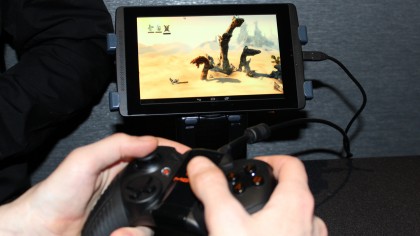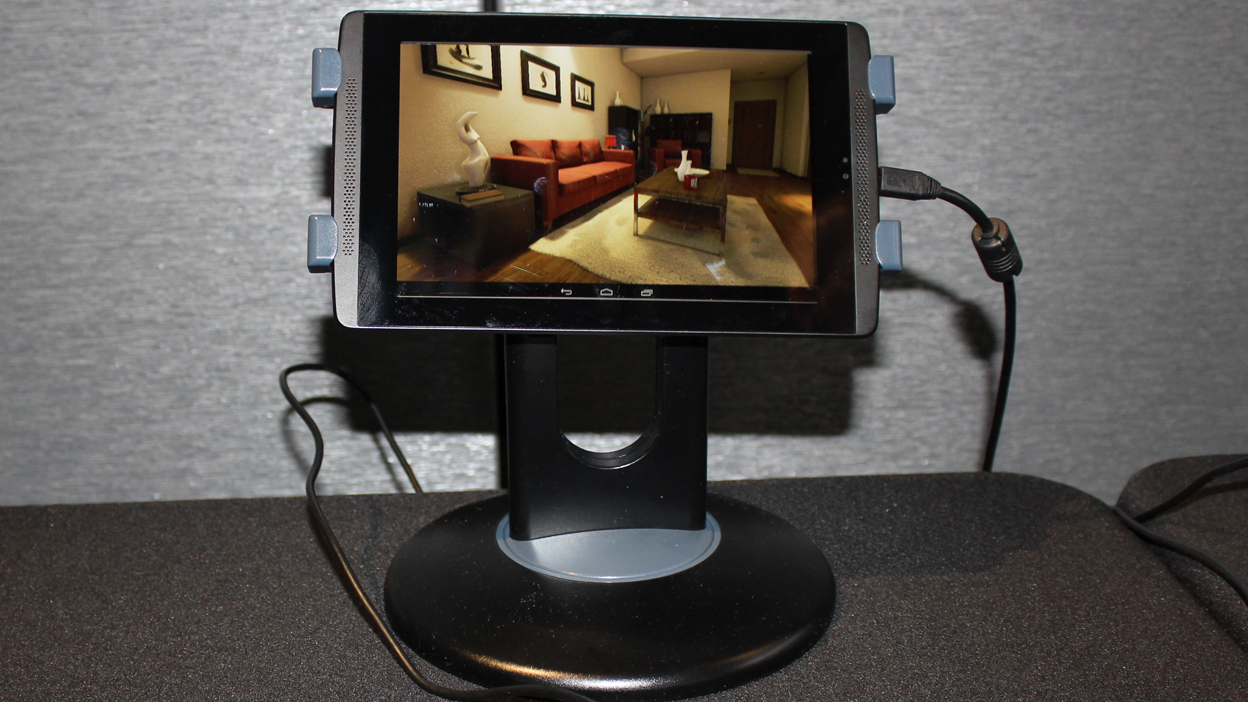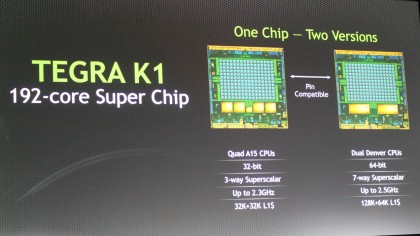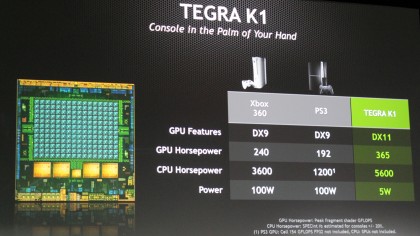Early Verdict
Pros
- +
Game demos look fantastic
- +
Console-quality game graphics
- +
Support from big-time developers
Cons
- -
Could add to tablet prices
- -
192 cores may be hype
Why you can trust TechRadar
Instead of unveiling the rumored Tegra 5 processor at CES 2014, Nvidia took its next-generation mobile processor back to K1 in name while upping the superchip with an impressive 192 cores.
The console-like K1 specs make for highly detailed tablet games, which we demoed using a half dozen 7-inch reference tablets packing the brand new mobile processor. The improved graphics were immediately noticeable in the two full games on hand.
The Android version of Serious Sam 3 was able to stay true to the look of the first-person shooter series thanks to the K1 chips use of Unreal Engine 4. Its 3D graphics bring all of the textures you'd expect on the PC version of the game. We were hard pressed to find the washed out details that are typically found in PC-to-Android shooter ports.
It also certainly helped that we were demoing this title with a Nyko wireless controller that made the experience feel as well as look nearly identical to the two-year-old PC games. Moving quickly in the game, the frame rate was a little slow, but we were told that this could be more of a memory issue than the fault of the new graphics processor.

Tegra K1 on 2D games and demos
Trine 2 isn't a 3D game, but rather a puzzle-filled 2D (or 2.5D) side-scroller that's bursting with just as much energy as Serious Game.
The K1 reference tablets we used were able to keep up with the software's Xbox 360, PS3 and Wii U counterparts thanks to dynamic lighting coupled with intense animations on the screen. It's something we haven't seen from Android games before; part of it is that Trine 2 makes for a beautiful demo and part of it is K1.

K1 chip demos not based on full games included its lifelike Digital Ira Faceworks tech demo that is so real its creepy, and the part-cartoon-part photorealistic household Living Room.
Both demos featured impressively realistic renderings, even though they didn't test the metal of the K1 chip with the same intense action as Serious Sam 3 and Trine 2.

K1 behind glass and behind a heatsink
The Nvidia K1 processor was available outside of its reference tablet confines, but it was behind a sheet of glass. Under that glass, it was underneath a rather large heatsink to keep to cool during operating.
This confused a lot of the people looking at the K1 for the first time at CES because the chip is supposed to be a tiny 28nm. The heatsink covering the GPU was about twice as large, making the tiny processor look less tablet friendly at first.
While the cooling solution hasn't quite caught up with the Nvidia's next-generation processor, the graphics company is looking to match what Microsoft and Sony are doing with next-generation video games and bring that to tablets.
Nvidia proudly displayed a chart comparing the DirectX 11-capable Tegra K1 to DirectX 9-using Xbox 360 and PS3. The K1 is also supposed to have more CPU and GPU horsepower while requiring less actual power, just 5W.

Early verdict
The Tegra K1 is a step up for tablet graphics. If successful, it could bring a whole new meaning to multiplatform gaming when it launches this year in 32-bit 2.3GHz and 64-bit 2.5GHz versions. After all, developers may be tempted to serve all of the K1 tablets out there if the install base becomes just as big as that of Xbox 360 and PS3.
What is a hands on review?
Hands on reviews' are a journalist's first impressions of a piece of kit based on spending some time with it. It may be just a few moments, or a few hours. The important thing is we have been able to play with it ourselves and can give you some sense of what it's like to use, even if it's only an embryonic view. For more information, see TechRadar's Reviews Guarantee.

